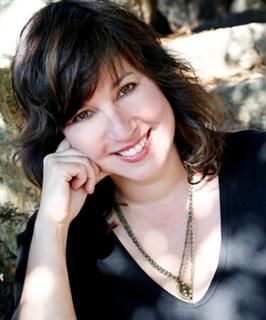|
Editor's Note: Be sure to read an excerpt from Dayna's book here. By Dayna Macy Since Ravenous: A Food Lover’s Journey from Obsession to Freedom has been published, I’ve been gratified to hear from readers how my journey to lose weight and make peace with my body has helped them. Some readers had questions about my book, and about my relationship to weight and my body since the book has been published. I am grateful to SparkPeople for letting me answer some of their most frequently asked questions here: Q. How much weight have you actually lost? A. About 30 pounds. Q. Have you kept it off and if so, is it a struggle? A. I’ve kept it off for over a half a year and it really isn’t a struggle. My body feels like it’s reached its comfortable weight. But it does take attention. I still use the tools I wrote about in my book, including measuring food and writing it down. Q. One of your "ah ha" realizations was that you needed to practice portion control. So in the end, didn’t you really just go on a diet? Why didn’t you just start there? A. I wish it had been that easy! If I had started this journey and someone said "here’s your answer: portion control" – I would have rejected it out of hand. I would have said, "That’s a diet. I don’t do diets". I didn’t want someone else to tell me what to do. I needed to discover my own truth and forge my own path. Instead, I set out to discover the underlying emotional reasons for my overeating. One of the most important things I learned was that in order to lose weight and keep it off, I needed find a path that embraced all aspects of myself – body, mind and spirit. So I needed to completely reframe the entire weight loss equation from that of a diet to that of a practice. For me, the answer lay in a combination of approaches. Right portioning was one of the tools I used on my journey. Q. You can call it a "practice" but isn’t it really just a "diet"? A. Not to me. Words contain nuance and energy. As a writer, I’m acutely aware of this. When I hear the word "diet," something in me hardens and shuts down, and I feel like I need to brace myself against sustained deprivation. The word "diet" also suggests something temporary – something you go on, which means it’s also something you can go off. "Practice," on the other hand, contains a lot space and breathing room. It comes from a place of kindness, and this is the only place true transformation can come from. Practice is not all or nothing. So if one day my practice was lax, I don’t throw in the towel and say, "I quit". It’s not all or nothing. It’s a journey. Q. Why didn’t you tell readers exactly what you weighed at the beginning, or at the end? A. I didn’t include my exact weight because people have strong feelings about specific numbers. I felt that if I stated my weight, some or my readers wouldn’t think I was heavy enough to understand their struggles, or, conversely, that I was too heavy to know what it felt like to want to lose a small amount of weight. I wanted my story to be more universal. That said, I did feel it was important to give readers some point of reference, so I wrote that I started the book as a size 18, and now wear a size 12. Q. Why didn’t you give us your "top tips" for losing weight? I was looking for it in the book but never found it! A. I wanted to write a memoir -- not a diet book. I am also loath to give others advice. But I do have some practical tips that have helped me. Here are some, in no particular order:
Q. Why has yoga been such a profound practice for you? A. If you practice yoga for a while, you begin to realize that the body is really quite eloquent in expressing its true needs. Yoga forces you to slow down and teaches you to pay attention – to the physical body, and to your breath. So I learned to pay attention to myself around food. The foods I cover in the first section of my book--chocolate, sausage, cheese and olives – are trigger foods for me. All I know is "I want that and I want that now!" Yoga though, helps me take a step back, and see that I’m in that state, and to just take a moment and pause. If you can lengthen the time between the impulse and the action, you have a greater chance of avoiding overeating. Q. What has surprised you most since you’ve published "Ravenous?" A. I’ve been surprised at how wily consumption can be and that it comes in many guises. I may not overeat much anymore but I still over consume, except now it’s shoes and not food. So I still wrestle with the question "what is enough" and "what do I need to be satisfied?" In "Ravenous," I wrote, "maybe the key to happiness is not having more, but needing less." I think this is true and I’m working on it. Q. Is your food problem "fixed?" At the beginning of my journey, that’s what I had hoped for. Underneath this question, though, is the unspoken desire to just be done with this weight problem and move on. A. But now I see that for me, losing weight and maintaining my weight loss is a continuing practice, and not something to be simply done with. I do pay attention every day to what and how I eat. If I didn’t, there’d be a greater chance that I’d fall back into old eating patterns. Q. The subtitle of your book is "A Food Lover’s Journey from Obsession to Freedom." So are you free from your obsession with food? A. I’m not fully free, but I’m a lot freer. But also, freedom doesn’t just mean reaching a certain weight, it also means letting go of the illusion of perfection. Q. What are some of the most important things you’ve learned? A. I want people to know that when it comes to finding a balanced relationship with food and reaching a healthy weight, struggle may be part of the journey but doesn’t need to define it; habits can change, slowly over time. True and lasting transformation comes from kindness. Have patience, and take the long view. Mostly, be grateful for the skin you’re in, here and now, no matter your size. Our bodies are magnificent, and they are only on temporary loan.  Have you read Ravenous: A Food Lover’s Journey from Obsession to Freedom? How did Dayna's story resonate with you? |
More From SparkPeople
|














